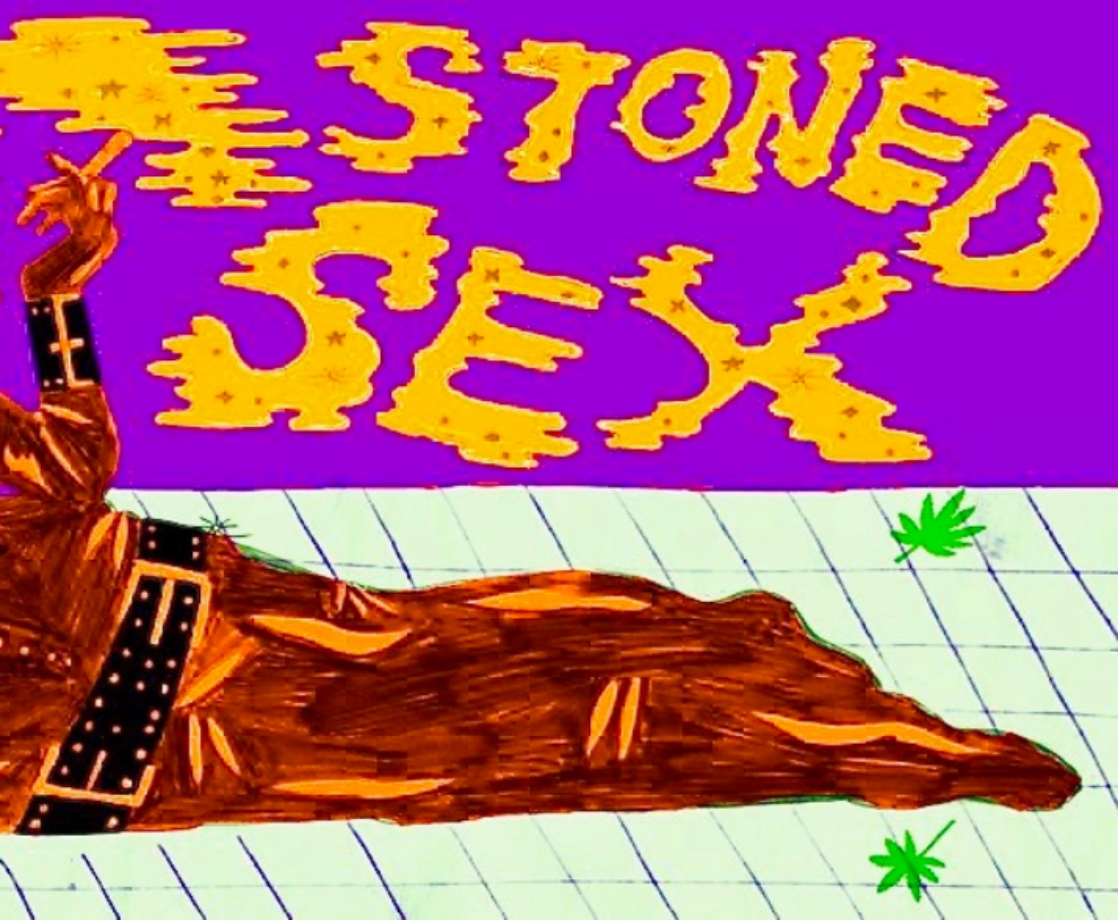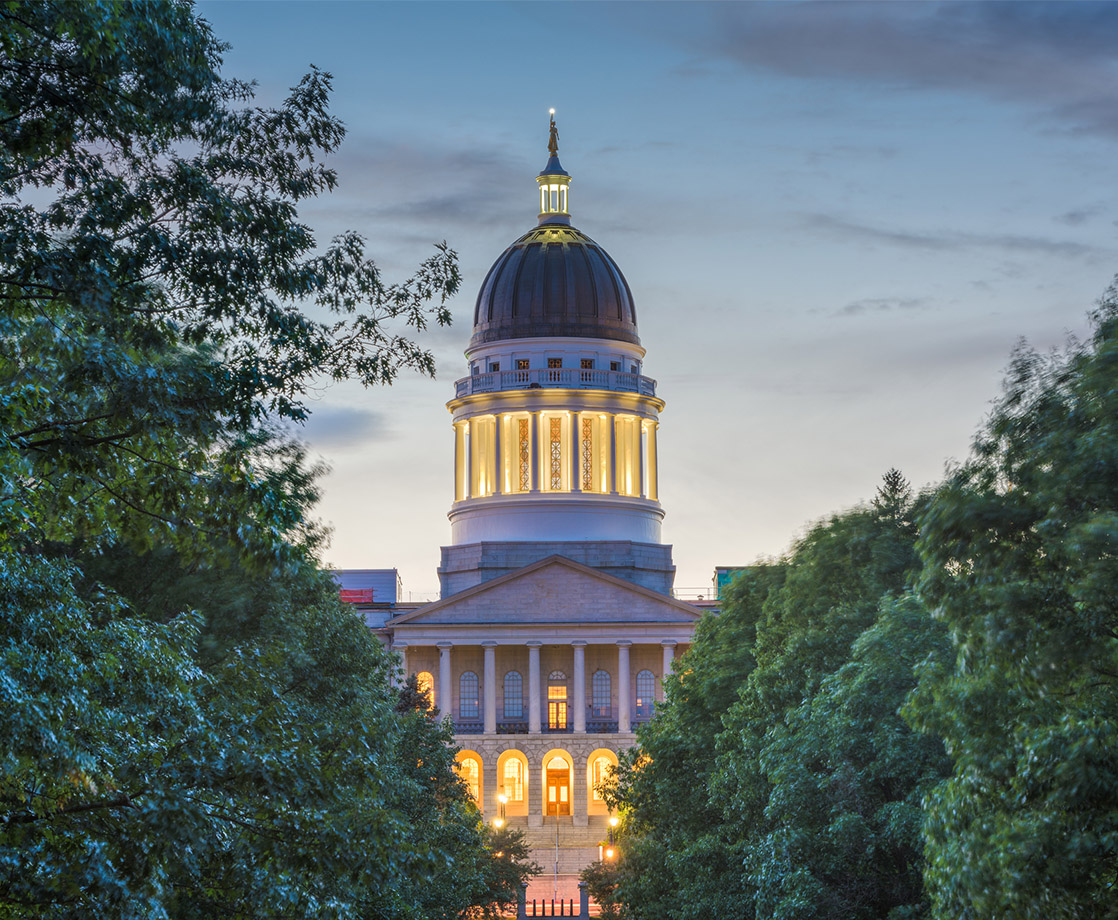Welcome back to Stoned Sex, the column where I’ll be exploring the intersection of sex and sativas, intercourse and indicas, often through first-hand experience and interviews with experts.
For this week’s edition, we’ll be diving into the controversial topic of using cannabis during pregnancy. ‘Stoned Sex’ will be running every other week, so make sure to stay tuned for the next dose.
You can’t die from consuming too much cannabis. In fact, it’s among the safest substances on the planet, which is partly why it’s such a goddess-send for a lot of people. The plant’s powerful, yet safe cannabinoids have anti-inflammatory properties that studies show treat a myriad of health conditions from pain to forms of epilepsy to nausea to insomnia.
Thankfully, there’s some science backing these claims now. Although hard data is still lacking, the overwhelming anecdotal evidence pointing to the plant’s medicinal power proves, if anything, that cannabis’ Schedule I classification is questionable at best.
The benefits people experience from cannabis have led a number of researchers to conduct small scale studies. And although most of the testing is done on animals, the results are promising for people of all ages. In fact, it can be argued that the potential for medical marijuana has the biggest implications for treating severe illness in children. The best example of this is Charlotte Figi, the little girl with Dravet’s syndrome — an extremely rare and debilitating form of epilepsy — behind the CBD-rich strain Charlotte’s Web.
These examples are held near and dear to the collective heart of the cannabis community, as they provide profound (anecdotal) evidence supporting marijuana’s medical benefits.
Along similar lines, the powerful but gentle advantages of cannabis are also being utilized by expecting mothers, primarily for stress, anxiety, insomnia, and morning sickness — but it is not without controversy. Still, that hasn’t stopped a number of mothers from using cannabis, instead of Big Pharma prescriptions, to deal with the physical — and sometimes debilitating — challenges of pregnancy. But is cannabis actually safe during pregnancy? That answer is hazier than a hot boxed Toyota on a humid August day.
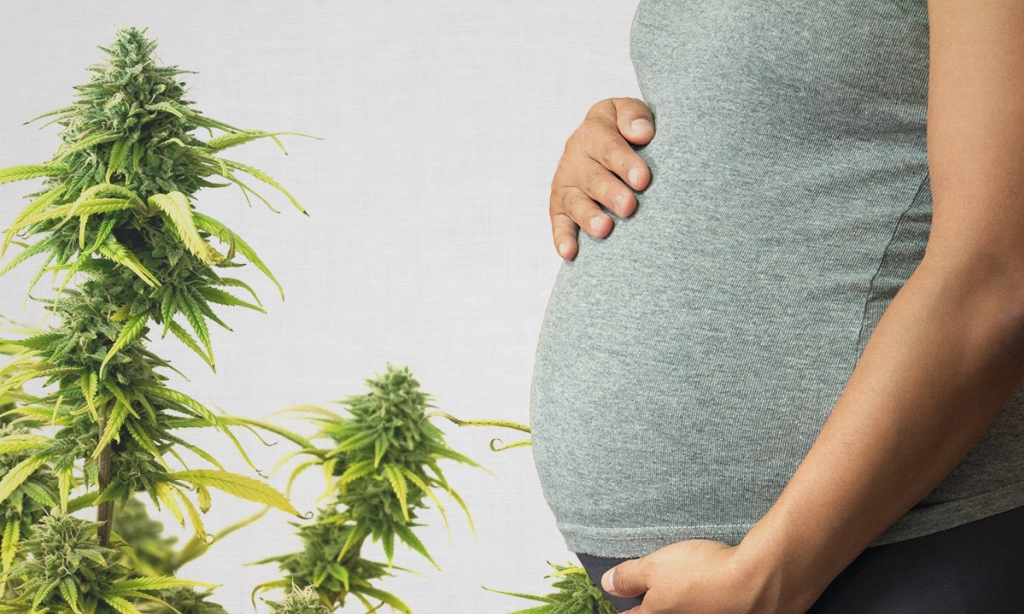
Photo credit: Royal Queen Seeds
What Does the Research Say?
Research suggests that THC reduces nausea in cancer patients. But you don’t need to be terminally ill to experience the anti-nausea effects of cannabis. In fact, it’s been used all over the world to treat the discomfort of an upset stomach.
For some mothers, cannabis is their treatment of choice for morning sickness. Morning sickness is nausea and vomiting that happens during pregnancy. While its exact cause is unknown, scientists believe hormones play a role. Despite its name, morning sickness can happen at any time of the day. According to Mayo Clinic, its most common during the first trimester.
“I used cannabis for extreme nausea and morning sickness during my first trimester,” said Kat,* a new mother.
She is not alone. Maggie, a mother of two, told me cannabis eased her morning sickness in both pregnancies. But it was met with serious push back from her doctors.
And most doctors still aren’t convinced.
“While many women report anecdotally to have used cannabis successfully to treat nausea and vomiting during pregnancy, no studies have been published to date to validate these claims,” says Carlos Rizo, MD, a researcher from Colombia with ample experience in medicinal cannabis. Dr. Rizo says that one of the biggest misconceptions about pot and pregnancy is its efficacy for morning sickness. “This may have happened because cannabis has shown to help cancer patients with nausea and vomiting and alleviate upper gastrointestinal side effects from chemotherapy.”
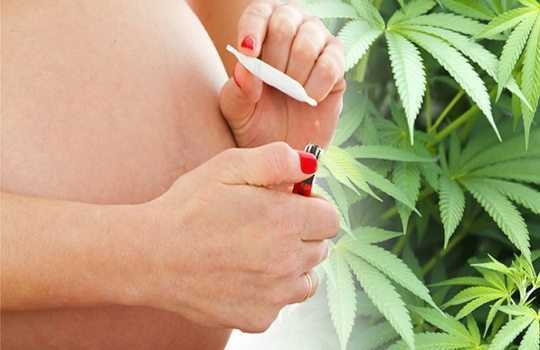
It’s tough to study the use of cannabis for morning sickness, however, given that weed is a Schedule I drug. But, even if there’s no proof that cannabis does helps nausea during pregnancy, is there any definitive data proving that it is dangerous?
“That’s the problem. It’s contradictory,” said Jordan Tishler, MD, a Harvard cannabis specialist. “There are about a dozen studies give or take and it’s kind of 50/50. Some of them say, ‘Oh my god don’t do it — this is the worst thing in the world,’ and the other half say ‘We don’t really see a problem here.”
A popular 1994 Jamaican study suggests that a mother’s prenatal marijuana use did not negatively affect children. The study followed 24 women living in a rural town in Jamaica where cannabis consumption is high. “Exposed and unexposed” newborns were compared at three days old and at one month old. They found no significant differences between the exposed and non-exposed babies on day three. At one month, the exposed newborns showed better physiological stability and required less examiner facilitation. Additionally, the babies of mothers using cannabis had better scores on autonomic stability, quality of alertness, irritability, and self-regulation.
Dr. Tishler points out, however, that the sample size was small, the study is old, and there wasn’t much follow-up research — not enough to truly assess how the impact of using cannabis during pregnancy impacts a newborn’s evolution.
A 2019 study published in JAMA suggests there’s an increased risk of poor birth outcomes among cannabis users. Researchers found an increased risk of premature birth, an increased risk low gestational weight for his or her gestational age, and an increased risk of transfer to the NICU, noted Dr. Rizo. But, due to the way scientific research is conducted, it’s unlikely that we’ll determine clear cut answers any time soon, considering how difficult it is to conduct cannabis research and studies on fetuses, which could potentially hurt them.
“The limitations on the available research on pregnancy and cannabis are not exclusively related to the legality of cannabis research per se,” Dr. Rizo said, “but rather to the enormous responsibility of conducting research on human fetuses.”
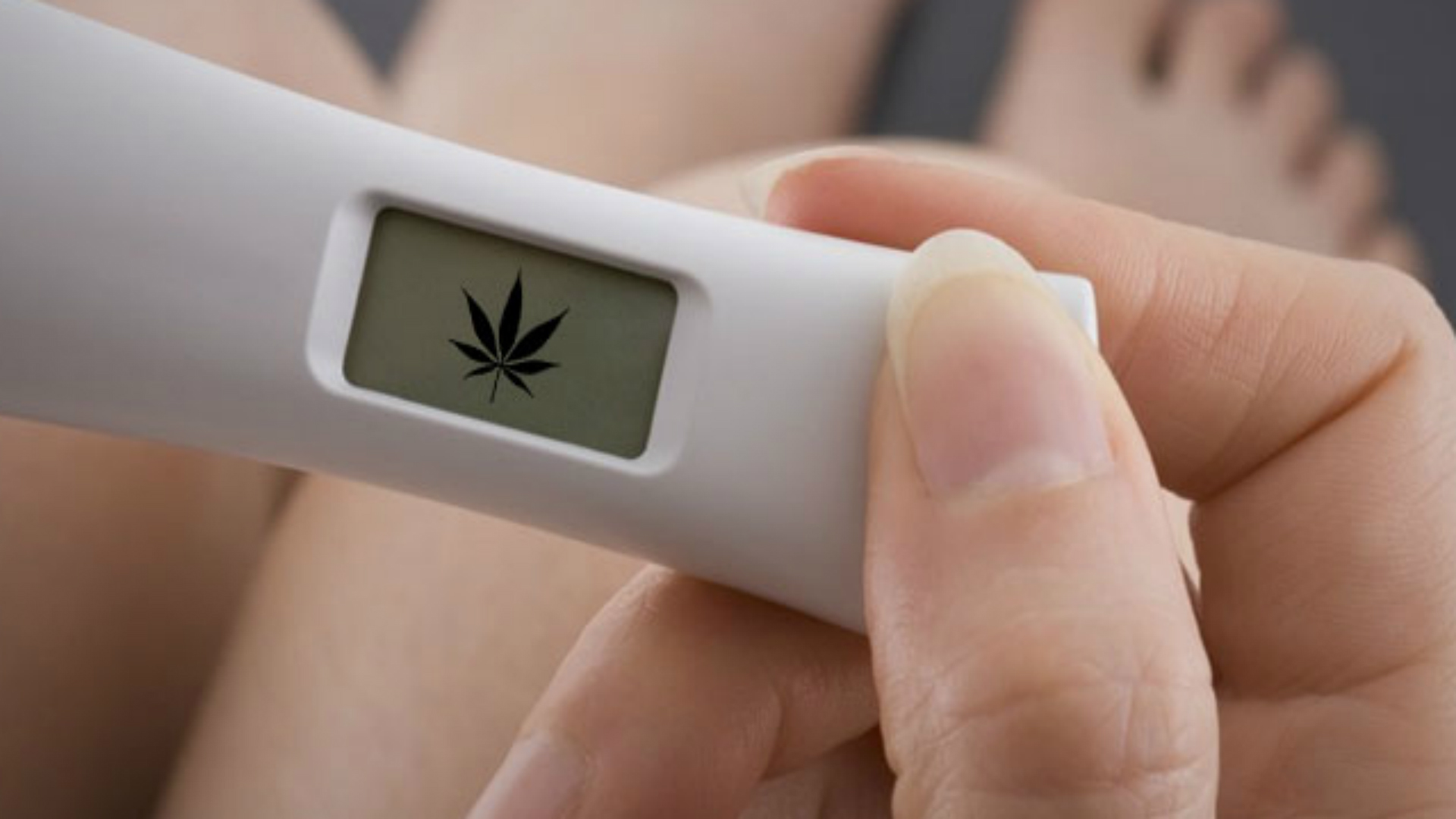
Child Protective Services Over THC
Even if science emerges showing that cannabis does ease morning sickness or that it can help women sleep better at night, moms still face major judgement from friends, family, and society. Anyone who uses cannabis can be judged, if not arrested, for using cannabis. Now imagine what would happen to a pregnant woman who was caught using cannabis?
Our culture often forgets that moms are still people. A stoned mother archetype is, apparently, too hot for puritanical America to handle. After growing sick of constant judgement, Kat explained that she kept her cannabis use from her family — even though cannabis was key to managing her stress while pregnant. It kept her from puking her brains out, but eventually she had to keep her use to herself.
“I was honest during my first trimester visits because they openly said they were drug testing me,” Kat said. “I explained I wouldn’t pass because I had smoked to ease my anxiety and told them I figured the stress I was feeling was way worse for the baby than a plant that grows from the ground. The nurse told me she understood and would ‘pass’ my drug test this time but that I needed to stop because it wasn’t okay.”
Kat’s experience is common and also happened to Maggie. ”My doctor, after I had my son — my first born — came in and said, ‘you tested positive for THC.’ My epidural hadn’t even worn off,” Maggie said.
When the doctor asked Maggie about cannabis, she came prepared. “I was very respectful and told them what I knew, and I wouldn’t have known that if I hadn’t educated myself because I’ve heard horror stories of what can happen to people. My doctor did not report me. She just let it go. I really attributed it to me having the knowledge. Especially if you’re a person of color or LGBTQ, you have to educate and advocate for yourself,” Maggie said.
While both Maggie and Kat were left off the hook, Rolling Stone reports that child protective services do come after moms who test positive for THC in the delivery room. “There is currently no real research out there because it’s unethical to run real studies on it,” Kat said. “There are support groups out there for moms who smoke during pregnancy like Cannamoms. If you are choosing to smoke while pregnant be sure to look into your state laws and doctors testing practices surrounding it.”
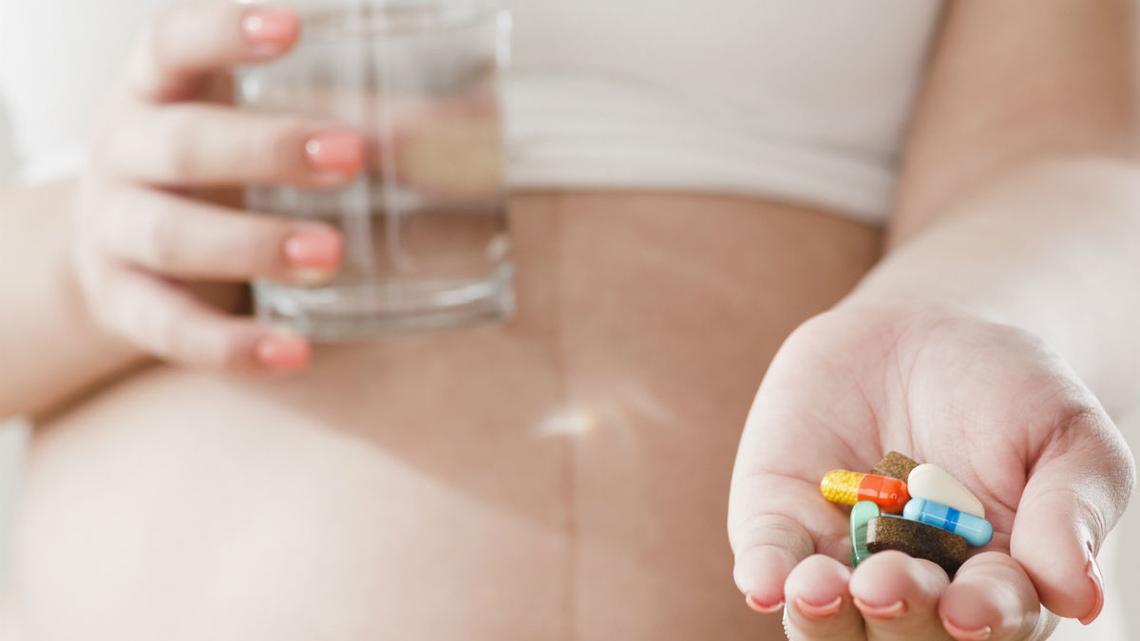
Pills, Stress, Insomnia, Anxiety — or THC?
Research shows that stress during pregnancy negatively impacts newborns. Hormones affect the child, which can impact organ development. Depression and insomnia — both of which cannabis treats — are also bad for developing babies. It is a cruel fact and sick joke that we currently do not have enough research to know which is worse: Using cannabis during pregnancy, living with insane stress, or taking prescription medications, such as SSRIs, which are also said to potentially harm to a fetus.
Ultimately, the difference for most people, unfortunately, is that prescription medications are legal and cannabis is a Schedule I drug. “Where I live, if you have a positive test while pregnant they have to report you to CPS [Child Protective Services],” Kat said. “Moving forward I tried to cut down on the amount I smoked and wouldn’t smoke close to doctors appointments.”
A doctor’s creed is to do no harm. That is the same sentiment that leads mothers to opt for a medicine they know, trust, and tolerate — like cannabis. But until research and society allows the plant to be researched in depth, doctors say ‘better safe than sorry.’
“My best advice is essentially don’t do it,” Dr. Tishler said. “I think that’s the best advice given that we don’t have a clear picture. And furthermore a clear picture is unlikely to emerge anytime soon.”


